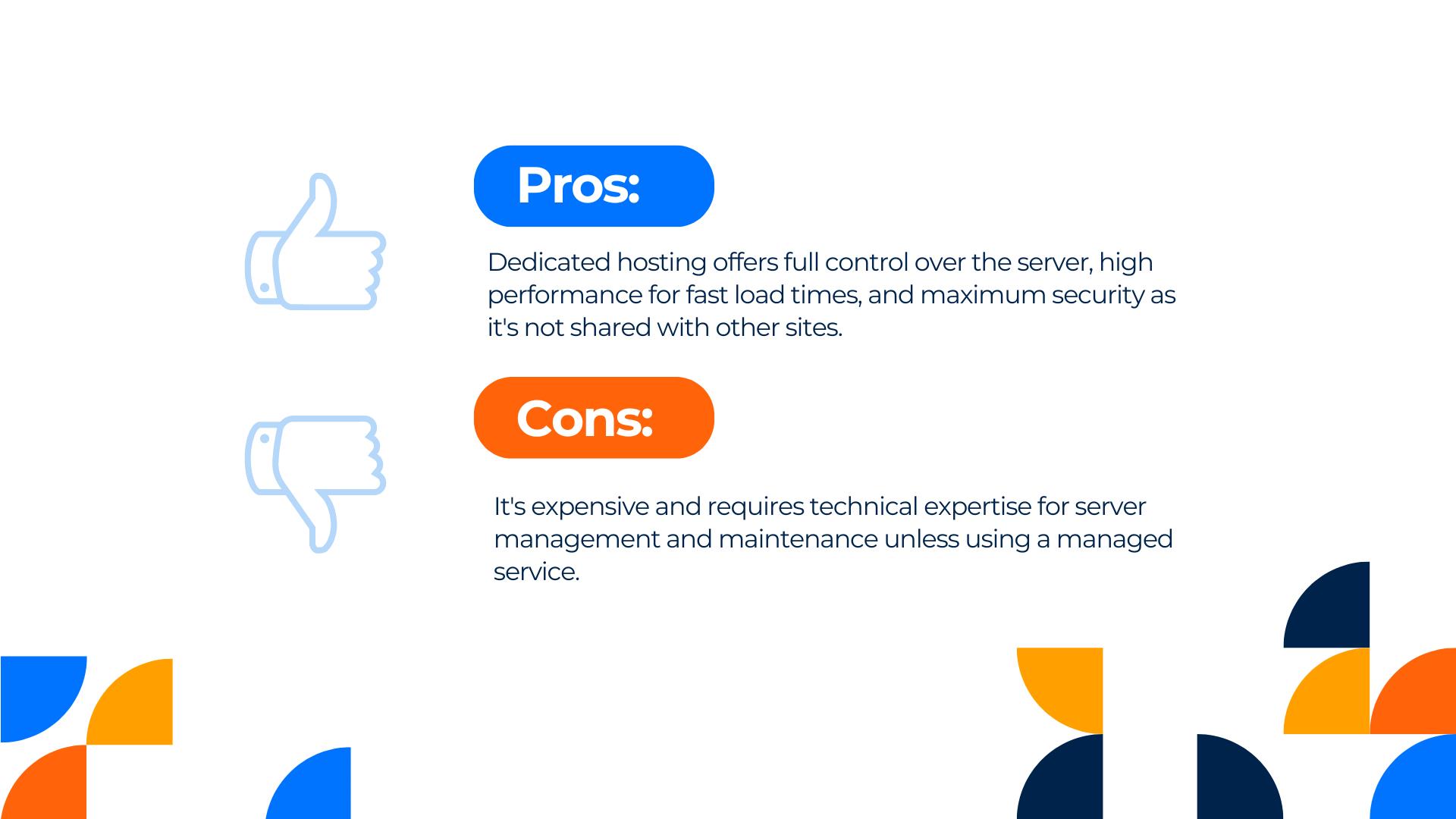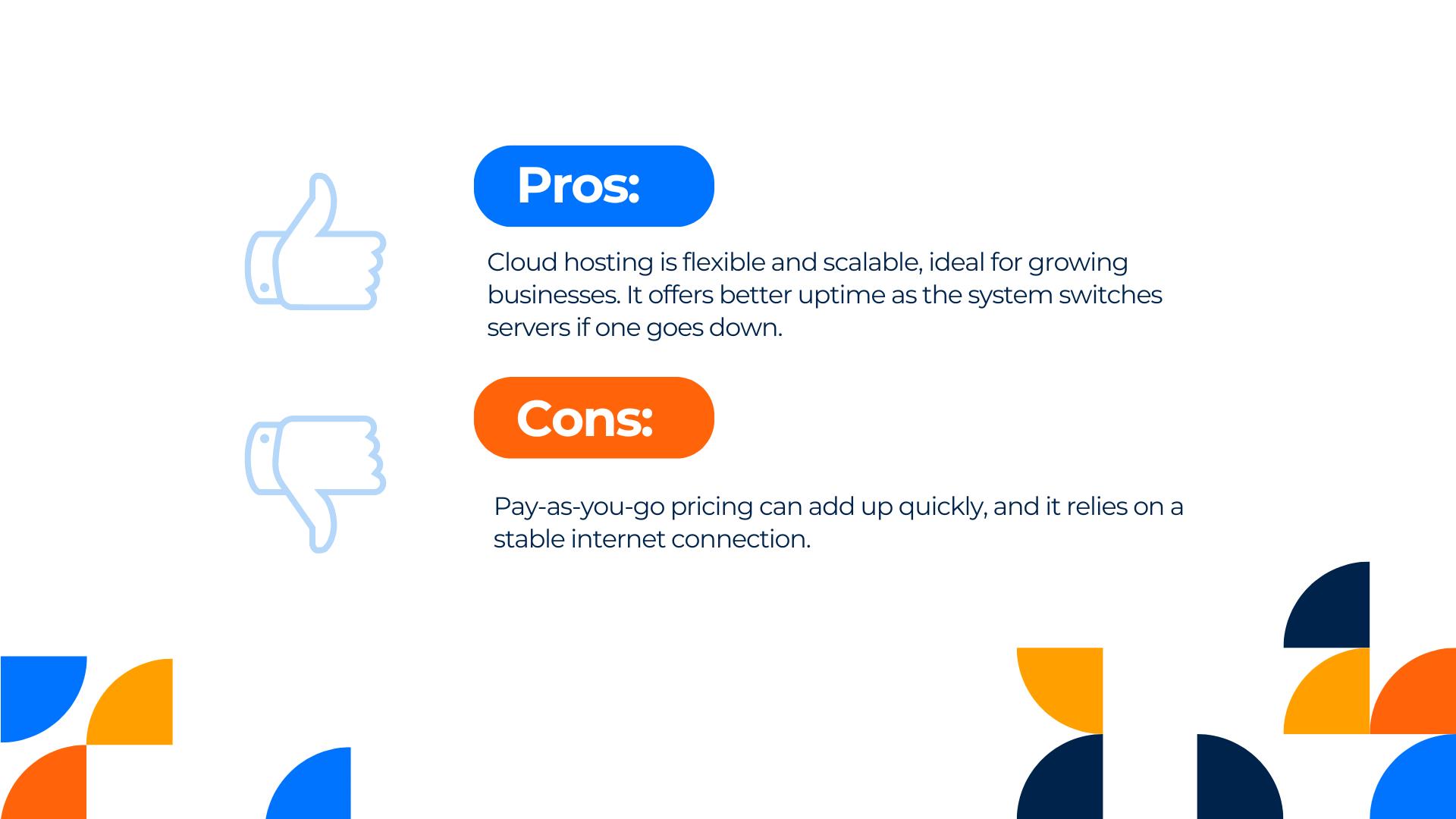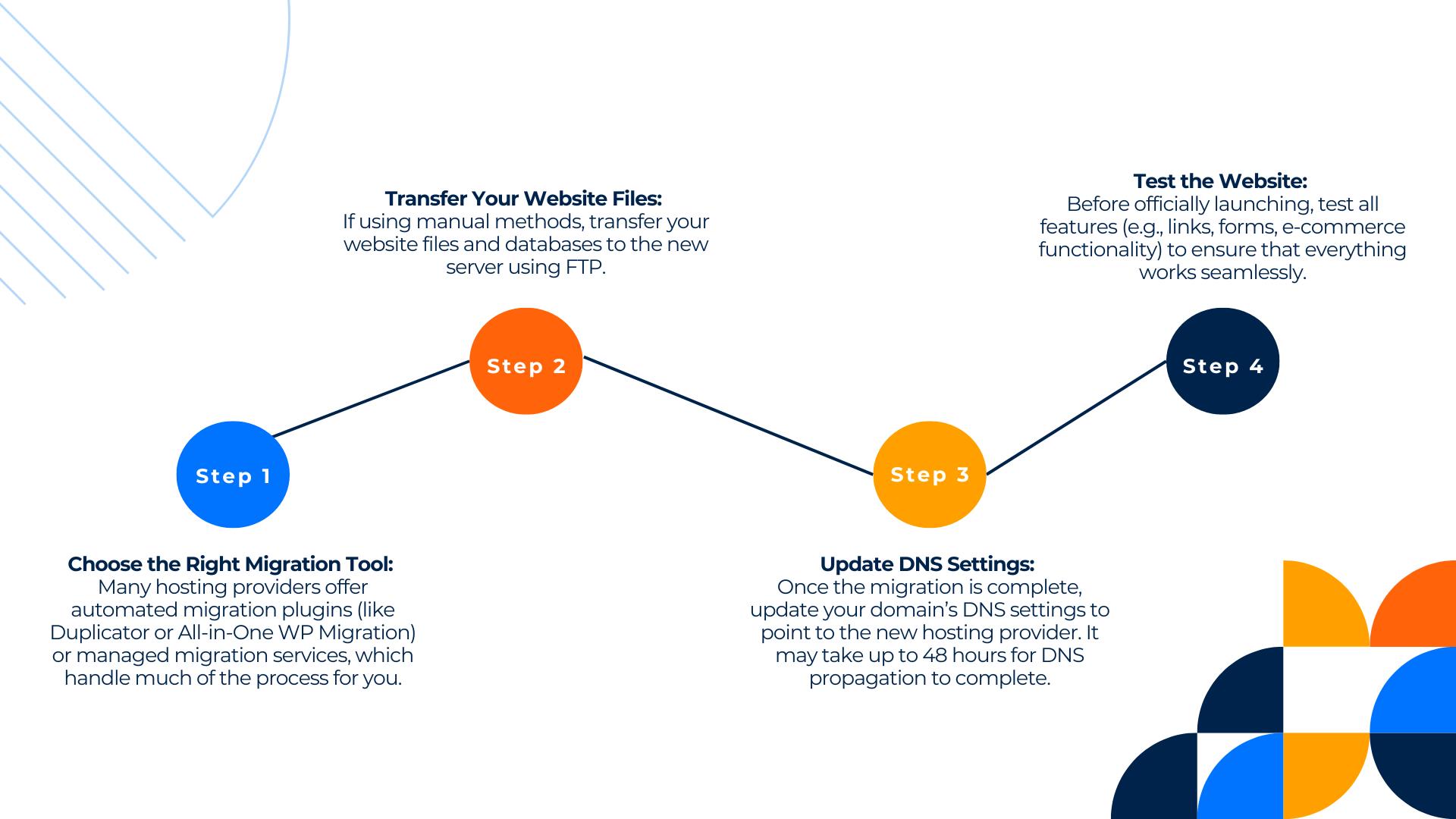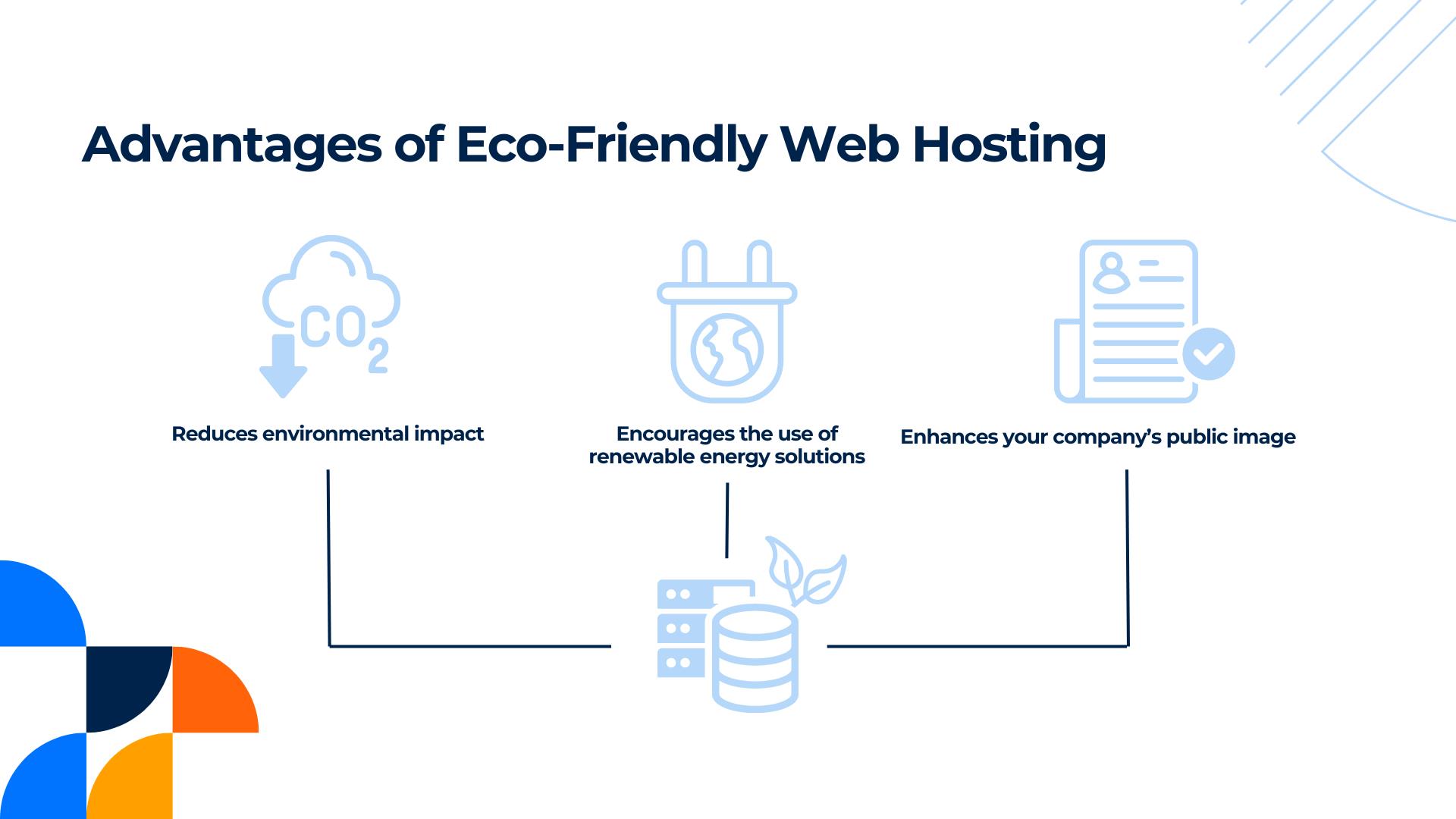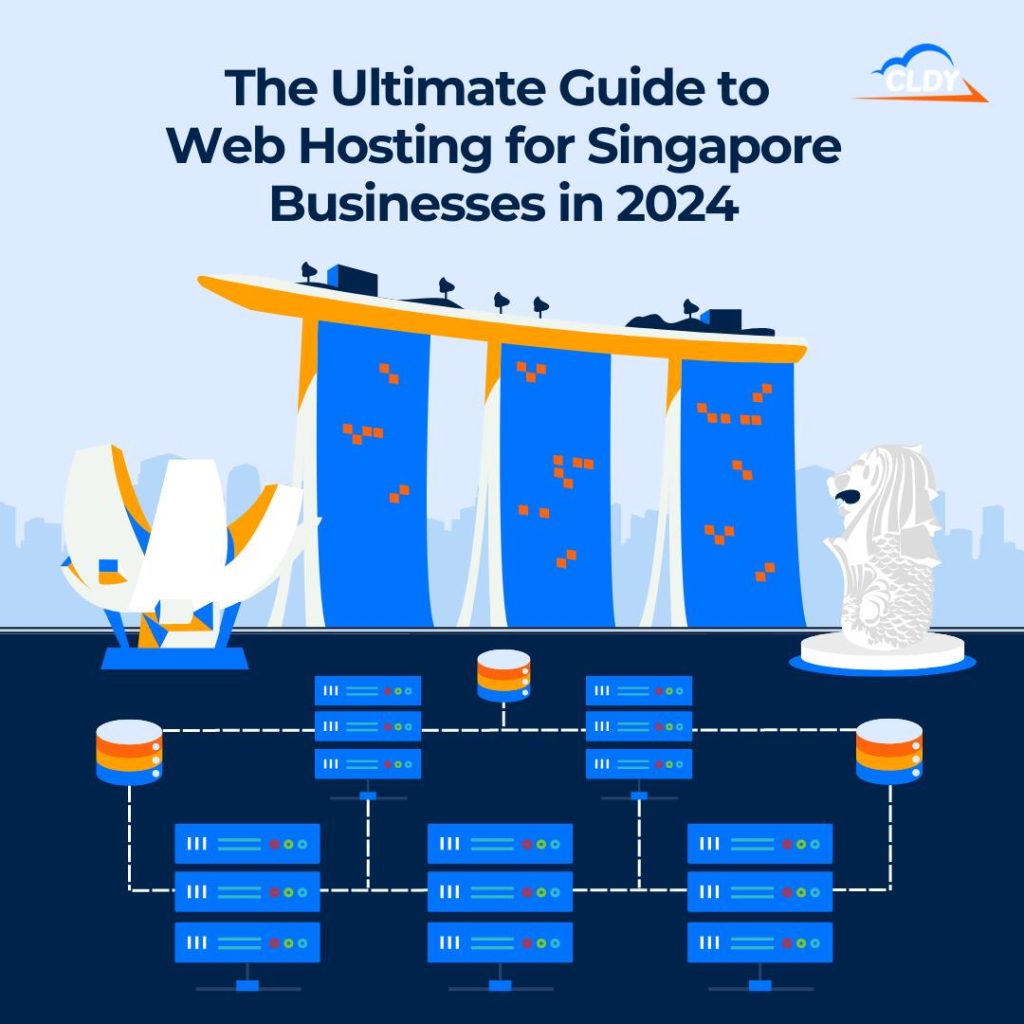
As the world increasingly moves online, having a website has become essential for businesses of all sizes. Whether you own a small local shop or a big online store, your website is usually the first place customers see your business.
To keep your website running smoothly, you need a reliable web hosting service. For businesses in Singapore, picking the right hosting provider is very important. It can greatly affect performance, security, and user experience.
But what exactly is web hosting, and why is it so important for businesses in Singapore? Let’s break it down.
What is Web Hosting?
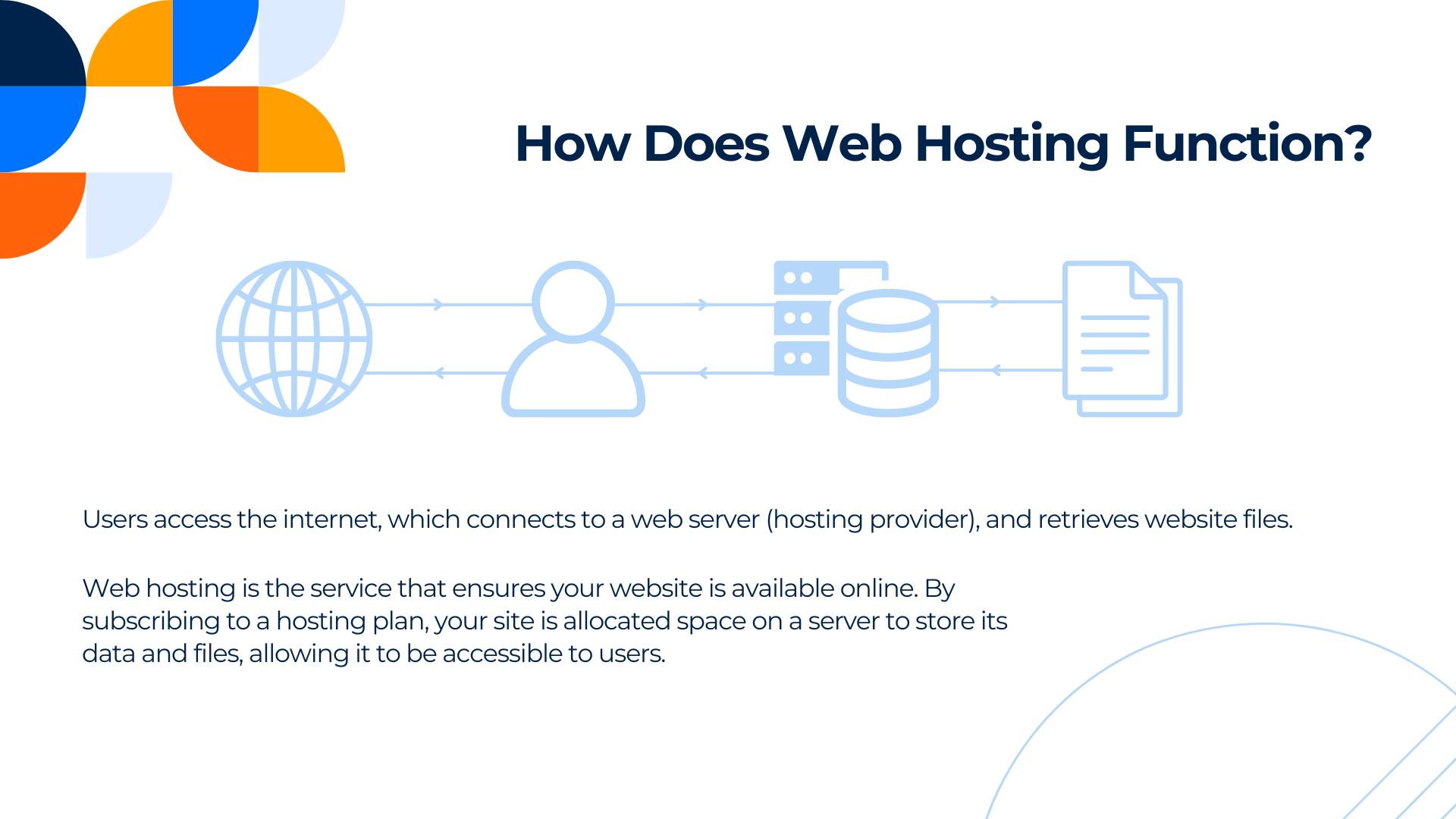
Why Is Web Hosting Important for Businesses in Singapore?
engine optimisation (SEO).
Types of Web Hosting Explained
When selecting a web hosting service, it’s important to understand the different types available and how they suit various business needs. We will discuss five common types of hosting.
They are: Shared Hosting, Virtual Private Server (VPS) Hosting, Dedicated Hosting, Cloud Hosting, and Managed Hosting. Each type has its own advantages and disadvantages. Each type has its own pros and cons.
Shared Hosting
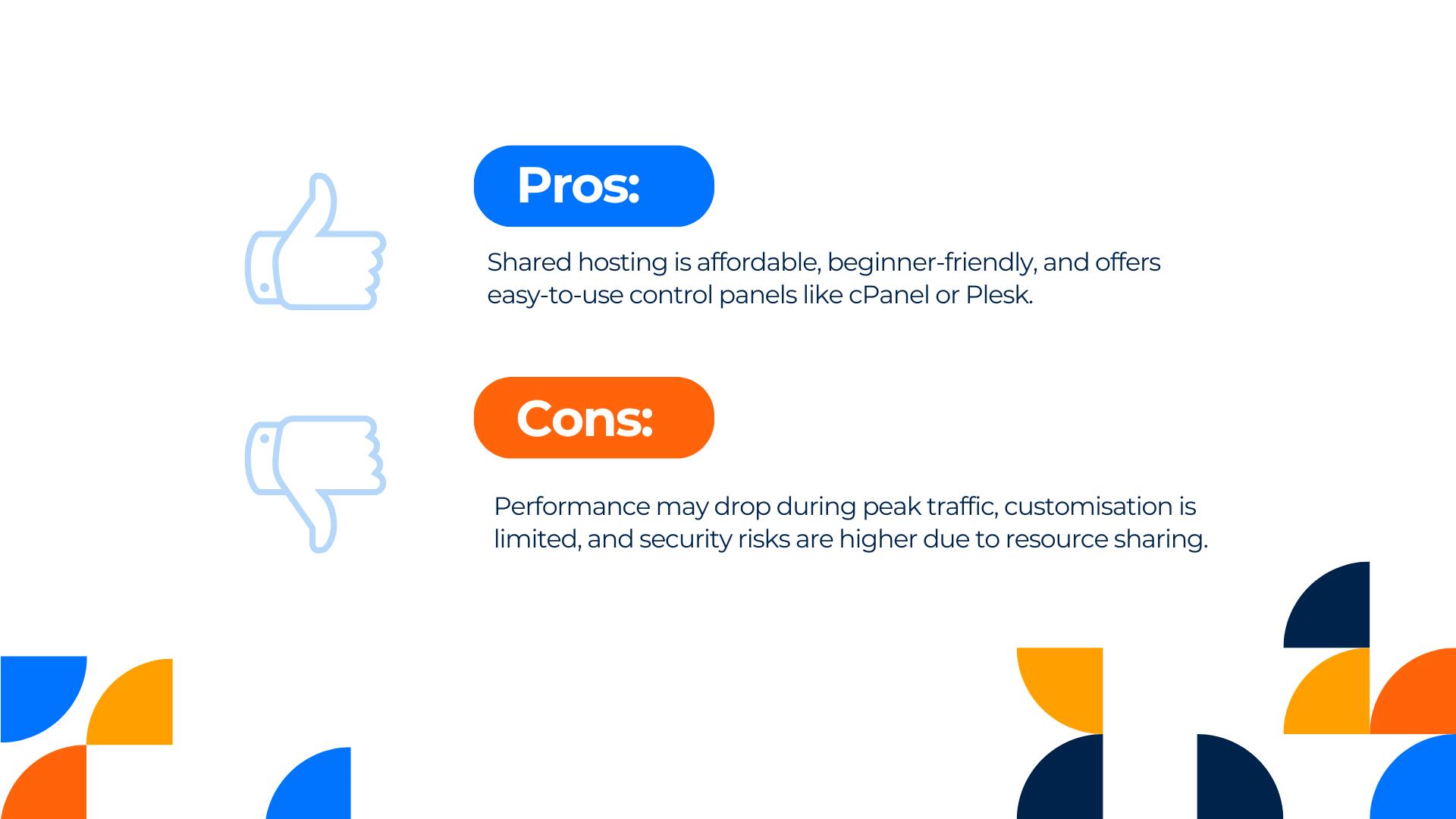
Virtual Private Server (VPS) Hosting
VPS hosting offers more control and flexibility than shared hosting. With a VPS, a physical server is divided into several virtual servers, giving you dedicated resources while still sharing the main hardware. Each VPS functions independently, providing more customisation options and better performance.
Pros: VPS hosting gives you more control and customisation than shared hosting. You have your own dedicated resources, like RAM and CPU. It’s also a good choice for websites that have outgrown shared hosting but aren’t yet ready for a dedicated server.
Cons: VPS hosting costs more than shared hosting. It also needs some technical knowledge to manage server settings. This makes it less suitable for beginners or those without IT skills.
Dedicated Hosting
Dedicated hosting provides businesses with an entire server dedicated solely to their
website. This option offers maximum control, performance, and security, making it ideal for larger businesses or high-traffic websites.
Cloud Hosting
Cloud hosting uses a network of servers to host your website, rather than relying on a single physical server. This setup makes cloud hosting highly scalable and reliable, as resources can be adjusted according to the needs of the website.
Managed Hosting
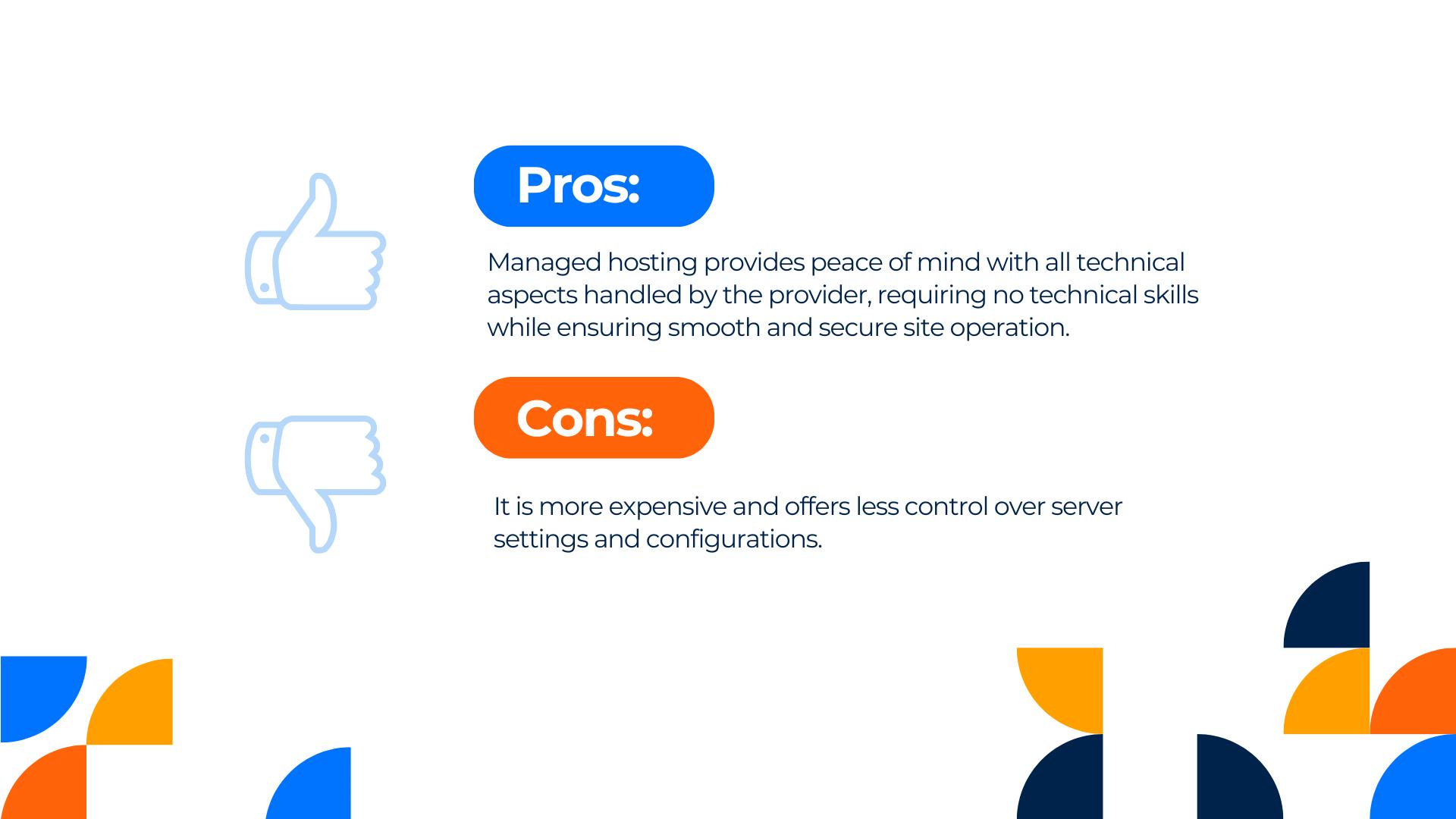
Key Performance Considerations for Web Hosting in 2024
Speed and Loading Times
Factors influencing speed include:
● Server Location
● Content Delivery Networks (CDNs)
Hosting providers with local servers—like CLDY in Singapore—reduce latency and improve load times, ensuring better performance for regional audiences. CDNs further enhance this by distributing data globally, allowing faster access from the nearest server.
Uptime and Reliability
Security Features
Security is a top priority for any online business, especially those handling sensitive data like e-commerce sites. Here are some essential security features to consider:
● Firewalls: Protect your website by blocking unauthorised access and malicious
attacks.
● DDoS Protection: Safeguards against Distributed Denial of Service (DDoS) attacks
that can overwhelm your website, causing downtime.
● SSL Certificates: Encrypts data between users and your website, protecting
sensitive information such as credit card details.
In Singapore, complying with data regulations like the General Data Protection Regulation (GDPR) and the Personal Data Protection Act (PDPA) is crucial. Many hosting providers offer services that adhere to these regulations, helping your business meet legal requirements and ensuring that customer data remains secure.
Scalability for Growing Businesses
Local Data Centers and Their Impact on Performance
solutions. This helps businesses enhance website performance for both local and regional customers, ensuring lower latency, a better user experience, and seamless compliance with local data regulations.
Factors to Consider When Choosing a Hosting Provider in Singapore
When selecting a web hosting provider in Singapore, it’s crucial to evaluate several factors that impact your website’s performance, scalability, and overall value. Below are the key considerations to keep in mind:
The cost of hosting varies significantly depending on the type of hosting you choose—shared hosting being the cheapest, and VPS or dedicated hosting being more expensive. However, don’t just look at price alone. The real value lies in what the provider offers for the price, such as bandwidth, security, and customer support. For instance, a slightly higher price for VPS hosting may offer better speed and security, which could be worth the investment as your business grows.
Customer Support Availability
assistance.
Bandwidth and Storage
Backup and Recovery Options
Automatic backups and disaster recovery plans are vital for safeguarding your website data. Choose hosting providers that offer regular backups, allowing you to restore your site quickly in case of data loss or cyberattacks. Providers like SiteGround and A2 Hosting are known for offering robust backup solutions to ensure your data is always secure.
Ease of Use: Control Panels and Dashboard
User-friendly control panels, such as cPanel or custom-built dashboards, play a significant role in site management. An intuitive dashboard makes it easy to manage website settings, monitor performance, and perform essential tasks without needing extensive technical knowledge. Opt for providers that offer straightforward control panels to simplify site management and enhance productivity.
How to Migrate to a New Hosting Provider in 2024
Migrating to a new hosting provider can seem like a daunting task, but with proper
preparation, the process can be smooth and hassle-free. Whether you’re switching providers for better performance, security, or cost-effectiveness, following a structured plan will minimise downtime and prevent data loss.
Preparing for Migration: Backup and Testing
4 Steps for a Smooth Migration
Common Pitfalls During Migration
Migrating can sometimes lead to downtime, data loss, or DNS propagation delays. To avoid these, ensure you have full backups, perform the migration during low-traffic periods, and monitor the DNS propagation process closely. Additionally, avoid making major site changes during the migration to prevent conflicts and errors.
Trends in Web Hosting for 2024
As technology changes, web hosting trends also change. New solutions appear to meet the needs of businesses around the world. In 2024, important trends like green hosting, AI solutions, edge computing, and serverless hosting are changing web hosting. These trends give businesses better, scalable, and more sustainable choices.
Rise of Green Hosting
In 2024, eco-friendly hosting has become a significant focus for businesses conscious of their environmental impact. Green hosting involves using renewable energy to power data centres, which helps reduce the carbon footprint of websites. As sustainability becomes increasingly important, many hosting providers are shifting towards greener operations. GreenGeeks and A2 Hosting are examples of companies that use renewable energy and offer carbon offset programs, making them popular choices for environmentally-conscious businesses. By choosing a green hosting provider, Singapore businesses can reduce their environmental footprint while aligning with global sustainability goals, appealing to
eco-minded customers.
AI-Powered Hosting Solutions
Artificial intelligence is transforming web hosting by improving performance, security, and resource management. AI can automate tasks such as load balancing, ensuring optimal server performance even during traffic spikes. AI tools are also being used for security monitoring, detecting and mitigating cyber threats in real-time.
For instance, Kinsta uses AI-driven performance monitoring tools to optimise server resources and predict potential issues before they impact website performance. AI-based solutions are especially beneficial for Singapore businesses that rely on consistent uptime and security, as AI can help prevent disruptions and enhance overall hosting efficiency.
Edge Computing and Its Impact on Hosting
Edge computing is a growing trend that reduces latency by processing data closer to the user rather than relying on central data centres. This technology is especially beneficial for businesses with global audiences or those requiring real-time data processing, such as video streaming or IoT applications.
For Singapore businesses, edge computing allows faster data delivery, especially when using edge data centres located in Asia. This technology helps improve website loading times and user experience, making it an attractive option for businesses looking to enhance perfo
Serverless Hosting: What to Know
Serverless hosting is another emerging trend that eliminates the need for businesses to manage servers directly. With serverless architecture, developers can focus on building and deploying applications without worrying about infrastructure management. The hosting provider automatically scales resources up or down based on demand, improving efficiency and cost management.
However, serverless hosting can cost more if not managed well. Some businesses may also have limits with custom server setups. For Singapore businesses that want to grow and develop easily, serverless hosting is a good choice. This is especially true for applications with unpredictable traffic.
Your Path to the Right Hosting
In this guide, we covered the essentials of web hosting for Singapore businesses in 2024, highlighting the types of hosting, key performance factors, and how to choose the right provider. Making the right choice is crucial to ensuring a smooth online experience for your customers. Take time to assess your business’s unique requirements and explore hosting options that will support your growth. If you’re ready to elevate your web presence, CLDY offers tailored hosting solutions with local expertise. Get in touch today to find the perfect fit for your business.
FAQ
1. What is web hosting and why is it important for my business in Singapore?
Web hosting is a service that allows your website to be accessible online by storing your website’s files and data on a server. It’s crucial for businesses in Singapore to have reliable hosting to ensure their website is fast, secure, and always available, helping to attract and retain customers.
2. What types of web hosting are available for Singapore businesses?
There are five main types of web hosting to consider:
● Shared Hosting: Affordable but with limited resources.
● Virtual Private Server (VPS) Hosting: Offers more control and dedicated resources.
● Dedicated Hosting: Provides full server control for high-performance websites.
● Cloud Hosting: Highly scalable with a network of servers.
● Managed Hosting: The provider handles all technical aspects for you.
3. Which type of hosting is best for a small business?
For most small businesses, Shared Hosting is a great option due to its affordability and ease of use. As your business grows, you may want to upgrade to VPS Hosting for more control and performance.
4. How does server location affect my website’s performance?
Server location can significantly impact website speed. Hosting with local servers, like thosein Singapore, reduces latency, meaning your website will load faster for local visitors. For businesses serving a regional audience, choosing a local hosting provider like CLDY can enhance performance.
5. What is the difference between VPS and dedicated hosting?
VPS Hosting partitions a server into virtual servers, offering dedicated resources at a lower cost. Dedicated Hosting gives you full control of an entire server, ensuring maximum performance, security, and customisation but at a higher cost.
6. How can cloud hosting benefit my business?
Cloud hosting is ideal for growing businesses because it is scalable. You can adjust
resources based on your website’s traffic, ensuring consistent performance even during traffic spikes. It also offers improved uptime by using a network of servers
7. Is managed hosting worth the extra cost?
Managed hosting is a good investment if you lack technical expertise or prefer to focus on your business rather than server management. It includes maintenance, security updates, and backups, providing peace of mind but with less control over server settings.
8. What are the key performance considerations when choosing a web hosting provider?
The main factors to consider are:
● Speed and Loading Times: A fast website improves user experience and SEO
rankings.
● Uptime and Reliability: Look for providers that guarantee high uptime to minimise downtime.
● Security Features: Ensure the hosting provider offers robust security, including
firewalls and SSL certificates.
● Scalability: Choose a provider that can scale with your business as it grows.
9. How can I improve my website’s speed?
To improve website speed, choose a hosting provider with local servers, like CLDY, and utilise a Content Delivery Network (CDN) to distribute data globally. Additionally, optimising your website’s content and using caching can further enhance speed.
10. How do I migrate to a new hosting provider?
Migration involves backing up your website data, transferring files, updating DNS settings, and testing the website for functionality. Many providers, including CLDY, offer migration tools or services to help make the transition smooth and minimise downtime.
11. What are the latest trends in web hosting for 2024?
Key trends include:
● Green Hosting: Hosting powered by renewable energy to reduce environmental
impact.
● AI-Powered Hosting: Using artificial intelligence for improved performance and
security.
● Edge Computing: Reducing latency by processing data closer to the user.
● Serverless Hosting: Allowing businesses to focus on development without
managing servers directly.
12. How do I ensure my hosting provider complies with Singapore’s data protection
laws?
Make sure your provider complies with regulations like the General Data Protection
Regulation (GDPR) and the Personal Data Protection Act (PDPA). Local providers like CLDY offer hosting solutions that adhere to these laws, ensuring your business is compliant with data protection regulations.



